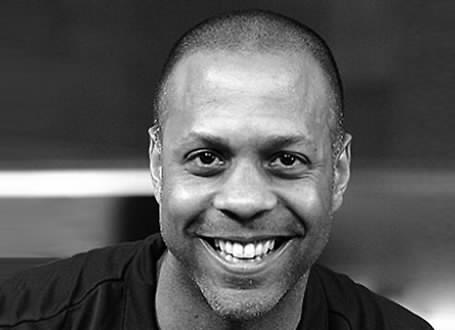Zen Bite: Weird Enlightenment
When people find out that I am a Zen Buddhist priest they often say, “Cool, man, you need to meet my friend — he’s a hippie too.” The assumption is that I am an ultra-liberal with a heavy aversion to anything that slightly resembles mainstream culture. I have to admit, I like tofu and find Burning Man intriguing, but I am very far from this stereotype. More importantly, so is authentic Zen training. This brings me to my point.
Somewhere along the way in America, “ Enlightenment” got weird.
When a portion of our culture sought to challenge the norms and ideologies of the 1950’s and ‘60’s, Eastern spiritual philosophies and practices were embraced by many people as a solution. “Oneness,” as misinterpreted by those new to Eastern spiritual practice, was seen as the expressway to peace, love and happiness. This led to more erroneous interpretations and adaptations, which were promoted to the foreground of the culture. In other words, Enlightenment got hijacked.
In the midst of the confusion, the original intentions of more than one ancient spiritual practice got overshadowed by what mainstream society saw as odd behavior, weird rituals and — worst of all — narcissism. In the end, the appeal to a larger cross section of individuals was lost, and those who sought exactly what traditions such as Zen could deliver were discouraged from engaging. Unfortunately, these perceptions linger on.
The above might seem like a harsh judgment, and perhaps it is. In all honesty, my words are intended to be a shot across the bow of those who hijacked Enlightenment in hopes of getting through to those who do not consider the pursuit of enlightenment relevant or appealing and who may be more moderate or conservative in their views and approach to life. If you are that person, lean in; you might find what you have been looking for.
Most people are not aware that the intention of Zen Buddhism is the perfection of character. People are also not aware that authentic Zen training (which requires studying with an authorized teacher) is on a par with that of elite athletes and military service men and women in its ability to produce extraordinary people that are disciplined, highly effective and able to withstand the pressures of high standards and expectations.
Character development is so far off the radar these days that it rarely occurs to anyone to pursue this form of training. There was a period, however, in my grandparents’ time, when this was emphasized. There are stages in life that call for a deeper comprehension of the underlying terrain that determines our thoughts, perspectives and actions. If we fail to address the condition of the terrain in a sufficient manner, our growth is severely constrained, as is our ability to function in roles of higher levels of responsibility to ourselves and others.
To better convey what I mean by the “underlying terrain,” here is part of a conversation that I had with my doctor several years ago. In 1995, I was battling a nasty virus. Approximately two months into being treated by my physician, I questioned his methods. I wanted to know why he had not prescribed the common medicines used to fight the virus. He replied, “If you want to defeat this thing, you have to treat the terrain, not the virus. You have to do what is necessary for the body to fight the virus by making the terrain as strong and healthy as you can. It is not the virus; it is your body that is the problem. If you do what I tell you to do, I guarantee that you will win this battle.” Fortunately I chose to trust him, and within a few months there was no trace of the virus to be found. The same philosophy applies in Zen.
In Zen, character is built by improving the condition of one’s “internal terrain.” This is accomplished through a combination of Zazen (Zen meditation), developing an understanding of reality, examining the make-up of your identity and cultivating a particular mindset based on simple guidelines known as the Eightfold Path, as well as other practices.
The training goes right to the heart of what it means to be human and exposes the hallmarks of the Human Condition; greed, anger and ignorance.
From this perspective, attempting to resolve our problems via intermittent participation in two to three-day workshops is like treating the virus and ignoring the fact that the larger landscape is in poor condition. This is why ongoing training and development, like Zen, is so effective and relevant to a much broader range of people.
For those who have been discouraged from exploring Zen or another form of training, I say to you, “Enlightenment is not weird.” When delivered as originally intended, enlightenment makes for better people, citizens and contributors to the solution of today’s problems. It creates a terrain where honor, loyalty and respect can flourish, and it is these things that open the door to a lifetime of fulfillment and the experience of realizing your potential.
So I want to leave those of you who may have thought Zen and Enlightenment are too “weird” with a different and more accurate perspective. I also want to encourage you to explore these practices and to trust that there is something for you in each of them. They were not created to be esoteric or for the fringes of society. They exist so you can become fully functional and integrated as an individual and as part of the world. If at first you do not find a person or group to be a good fit, keep searching. Sooner or later you will find the right one for you.
Good luck!

Mark Eckhardt Bio
Since 1998, Mark Eckhardt has studied Zen Buddhism under the auspices of Bill Yoshin Jordan, Abbot of the Santa Monica Zen Center.
Learn More